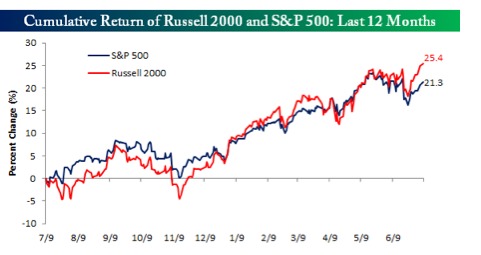By: Sune Mortenson, Head of Wealth Studies
The LSEG Future of Wealth Forum 2024[1] was held in October, and brought together a wide range of industry leaders to discuss the core themes and trends that will shape the future wealth management industry. In this insight we outline some of the key topics discussed at the forum and the impact they may have on the future of wealth.
- LSEG recently brought together wealth industry leaders at our Future of Wealth Forum event, to discuss the core themes and trends that will shape the future of wealth management
- Large language models, generative AI and quantum computing are some of the key topics discussed and how they might impact the future of wealth.
- With the big focus on technology, the human element was not overlooked, specifically human genetics and how we can create a hybrid model by leveraging technology.
AI and the transformation of the wealth space
As the pace of innovation in AI accelerates, it is clear that the impact of evolving technology on the wealth industry is substantial: early hesitation around AI adoption has been replaced by surging interest and investment, with research revealing that a third of surveyed US wealth managers plan to spend US$50M or more in 2024 and 2025 on GenAI initiatives[2].
While AI is poised to impact virtually all aspects of the wealth management arena, the areas of highest priority for wealth managers are relationship management and sales and marketing campaigns, selected by 44% and 39% of respondents respectively[3].
Drilling down, two key areas where AI is already transforming the wealth space include:
Large language models (LLMs) and natural language processing (NLP)
LLMs harness AI to process text and NLP turns the complexities of human language into simplified patterns to power workflows and analytics. Recent developments in this space have improved performance – both in accuracy and nuance – meaning that LLMs can increasingly be used to distil insights from volumes of financial text, while taking sentiment and emotion into account. The same technology can be harnessed to help wealth managers detect emerging trends and predict stock prices.
Generative AI
Generative AI can be used to write summaries of news and documents, as well as answer simple queries. It can offer tangible help to wealth managers by, for example, creating simple summaries when media attention on a particular company spikes, alerting advisors to unusual activity that may require attention.
Despite the transformational potential of AI in these and other areas of the wealth arena, it is also worth noting that there remains a healthy dose of scepticism in this developing space. Many stakeholders continue to ask pertinent questions, such as whether AI will surpass human performance standards and then simply plateau; whether a zero percent error rate will ever be possible; whether we will even be able to power the multi-gigawatt data centres emerging tech will need without bringing down our power grids; and much more.
Key emerging trends
Several key trends are worth noting, but two that stand out include:
“ 44% of wealth managers state relationship management as the highest priority area where AI can have an impact ” – ThoughtLab
The need for a holistic approach to wealth management
Investor preferences for a holistic approach to the management of their wealth are becoming more evident, with increasing expectations that advisors offer broad advice, spanning aspects such as day-to-day spending and cash flow; managing debt; and more.
This growth in the popularity of holistic advisory models can be seen in a clear shift in advisor positioning over the last three years:
“ In 2024, 60% of advisors said that they position themselves as a primary advisor and “financial coach” to clients, substantially up from 51% in 2021 ” – Datos insights
A looming human capital crisis
A substantial 27% of the 384,000 financial advisors in the US are 55 or older – and 17% are 60 or older[4]. Research shows that 29% of respondents in a recent survey expect between 26% and 35% of their advisors to retire by 2030[5] – and more than this, that 65% of these firms have advisors who administer at least a quarter of the firm’s AUM – and are expected to retire by 2030[6]. Wealth managers need to take note of this sooner rather than later.
Quantum computing: the future of wealth?
Quantum computing leverages the principles of quantum mechanics to solve highly complex problems, and has the ability to solve challenges across the wealth spectrum – from portfolio optimisation and time series forecasting, to risk simulation, customer analytics and more.
It can be used to help advisors and investors pinpoint different patterns that might otherwise remain hidden. For example, it could be used to more accurately distinguish between fraudulent and genuine transactions across multiple datasets, or to calculate market sensitivities to hedge against risks such as movements in interest rates.
Quantum computing is poised to become mainstream – and further, it has the ability to be a winner-takes-most technology, meaning that a disproportionate share of the value created will likely go to the earliest adopters. Those that delay are likely to face an array of challenges, not least of which will be attracting scarce talent.
The human element
And finally, our forum participants did not forget a nod to genetics, reminding attendees that human behaviour impacts investing in ways we do not yet fully understand. What we do know is that traits and financial choices are impacted by nature (genetics), nurture (the environment) and the interaction of nature and nurture. Risk aversion and beliefs, as well as other factors such as trust, wealth and optimism can substantially impact final investment decisions.
Whilst this is a very brief snapshot of the core issues discussed at the forum, the event opened some important, ongoing conversations around the future of wealth and offered a unique opportunity for participants to network and interact. More than this, it was an opportunity for stakeholders to collaborate, glimpse the future of the wealth industry, and understand what it will take to remain at the forefront of innovation in wealth management.
Originally posted on December 02, 2024 on LSEG blog
PHOTO CREDIT: https://www.shutterstock.com/g/thanmano
VIA SHUTTERSTOCK
FOOTNOTES:
- http://www.futureofwealthforum.com/event/db85805a-0768-4c60-858a-2590adfecae8/summary
- Source: Datos Insights.
- Source: Datos insights
- Source: U.S. Census Bureau American Community Survey
- Source: Datos Insights Wealth Management Research Council
- Source: Datos Insights Wealth Management Research Council
DISCLOSURES:
Republication or redistribution of LSE Group content is prohibited without our prior written consent.
The content of this publication is for informational purposes only and has no legal effect, does not form part of any contract, does not, and does not seek to constitute advice of any nature and no reliance should be placed upon statements contained herein. Whilst reasonable efforts have been taken to ensure that the contents of this publication are accurate and reliable, LSE Group does not guarantee that this document is free from errors or omissions; therefore, you may not rely upon the content of this document under any circumstances and you should seek your own independent legal, investment, tax and other advice. Neither We nor our affiliates shall be liable for any errors, inaccuracies or delays in the publication or any other content, or for any actions taken by you in reliance thereon.
Copyright © 2024 London Stock Exchange Group. All rights reserved.



